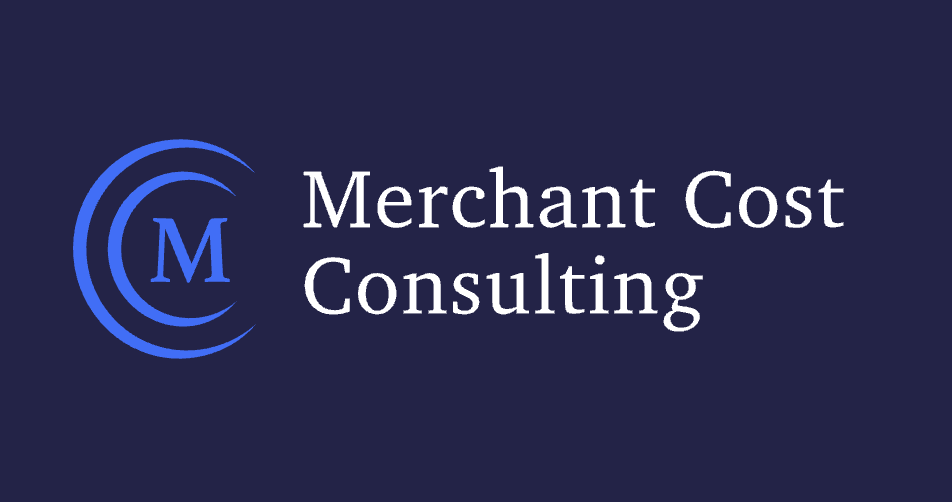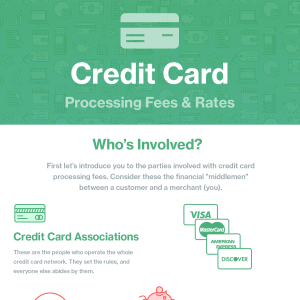Merchant services come with more than just per-transaction fees. Get the full breakdown, plus tips for avoiding surprises.
Our content reflects the editorial opinions of our experts. While our site makes money through
referral partnerships, we only partner with companies that meet our standards for quality, as outlined in our independent
rating and scoring system.
If you take credit and debit cards, merchant account fees are part of the deal. The problem? They’re often confusing, unpredictable, and expensive — especially when sales reps gloss over the fine print.
In this guide, we’ll break down what these fees actually are, what you’ll probably pay, and how to spot the sneaky stuff. Plus, we’ll cover ways to keep your costs under control so you’re not overpaying every month.
What Are Merchant Account Fees?
If you want to accept credit or debit cards, you need a merchant account, and that comes with fees. Some fees hit every month (or year), whether you make sales or not. Others only appear when something specific happens, like a customer dispute.
It gets confusing because each fee has its own purpose, and they’re all listed separately on your statement. Some are set by your processor, while others are from the big card networks — Visa, Mastercard, Discover, and American Express. Your processor just collects the fee and passes it along. You can’t negotiate those, but your provider can add their own markup on top.
On top of that, there’s no universal standard. Each provider sets their own rules, so fees can look very different depending on who you go with.
The Three Main Types of Merchant Account Fees
There are three types of merchant services fees:
- Transaction Processing Fees: Charged by banks, card associations, and your processor every time a customer pays with a card.
- Scheduled (Recurring) Fees: Regular charges for maintaining your account that are usually charged monthly or annually.
- Incidental Fees: Fees that only occur in specific situations, such as chargebacks or PCI non-compliance.
Transaction Processing Fees
Transaction fees are often the largest cost of accepting cards. They typically include a percentage of the transaction plus a fixed fee (sometimes called an authorization fee). Here’s a breakdown:
| Fee Type |
Typical Cost |
Who Charges It |
Description |
| Interchange Fees |
1.5%-3.1% |
Issuing banks |
Largest single expense; paid per transaction |
| Assessment Fees |
0.12%-0.15% |
Card associations |
Passed through by your processor |
| Markup Fees |
0.10%-0.40% + $0.05-$0.49 |
Your processor |
Covers provider costs and profit |
For a deeper dive, see our complete guide to credit card processing rates and fees.
Scheduled Merchant Account Fees
Scheduled fees are the recurring costs for keeping your account active. Most are monthly, though some are annual or quarterly. Fee amounts can vary by provider and can sometimes be negotiated. Common examples include:
|
Typical Price Range |
Notes |
| Fixed Acquirer Network Fee (FANF) |
Varies |
Charged by Visa; varies by business type & volume |
| Merchant Location Fee |
$15/year or $1.25/month |
Charged by Mastercard; may be waived for some businesses |
| PIN Debit Network Fee |
$50-$62/year |
For use of the PIN Debit networks, if your business accepts debit cards |
| Monthly Account Fee |
$0-$199/month |
Maintains your account; may include support |
| Annual Fee |
$0-$300/year |
Often for “upgrades” but sometimes a junk fee |
| Statement Fee |
$7-$10/month |
Covers mailed statements; can potentially avoid with e-statements |
| Online Reporting Fee |
$5-$15/month |
Alternative for electronic reporting |
| Monthly Minimum Fee |
$5-$25/month |
Charged if your processing volume is low |
| Equipment Leasing Fee |
$5-$60/month |
Can be avoided by buying terminals outright |
| POS Software Fee |
$10-$100/month |
Subscription for software, separate from hardware |
| Payment Gateway Fee |
$5-$25/month + $0.05/transaction |
A monthly subscription fee for use of a payment gateway, typically charged for third-party gateways |
| PCI Compliance Fee |
$60-$130/year |
For security scans and compliance |
| IRS 1099-K Reporting Fee |
$25/year |
For reporting to the IRS |
Incidental Merchant Fees
These only show up when something specific happens with your account. Most are one-off charges, but a few (like PCI non-compliance) can hit you every month until you fix the problem.
| Fee |
Typical Cost |
What It Is |
| Refund Fee |
Varies by provider |
Some providers keep processing fees when issuing refunds |
| Chargeback Fee |
$15-$25 per case |
Charged when a customer disputes a transaction; some providers refund it if you win |
| Batch Fee |
$0.10-$0.25 each |
Charged when you submit a batch of transactions |
| AVS Fee |
About $0.10 each |
For using Address Verification Service in card-not-present transactions to help prevent fraud |
| PCI Non-Compliance Fee |
Around $30/month |
A penalty if you don’t meet PCI compliance. Charged every month until fixed. |
Do Merchant Accounts Have Hidden Fees?
“Hidden fees” usually come from a combination of sales reps glossing over costs and merchants not reading contracts carefully. Your agreement should disclose every fee you may owe. Still, some providers include clauses allowing them to impose new fees or raise existing ones without notice.
Fees most often flagged as hidden include:
- Application or Account Setup Fees: Rare but still charged by some providers; usually not worth paying unless your business is high-risk.
- Annual Fees: Often marketed as upgrades, but sometimes provide little value.
- Early Termination Fees (ETFs): $200-$600, applied if you cancel a long-term contract early. Many top providers no longer require these.
How To Manage & Reduce Fees
Even if fees are unavoidable, you can take steps to keep costs under control:
- Use a Payment Service Provider (PSP): Small or new businesses may not need a full-service merchant account. PSPs like Square offer no contracts and no monthly fees for basic services. Flat-rate per-transaction fees are higher, but overall costs are often lower.
- Choose a Transparent Merchant Account Provider: Larger businesses may need full-service accounts. Providers like Helcim and Dharma Merchant Services disclose fee schedules upfront, making it easier to estimate costs before signing up.
- Negotiate Your Fees: While wholesale fees aren’t negotiable, markup fees charged by your provider are. You can often negotiate early termination fees, monthly minimums, or rolling reserves.
The Bottom Line On Merchant Services Fees
Merchant account fees are an unavoidable part of doing business, but understanding them makes a big difference. Even accounts with no monthly fees, like Square, pass costs on through higher transaction rates.
Small businesses with low processing volumes feel the impact most. If your provider is charging unexpected fees every month, it may be time to shop around. Start with providers that offer transparent pricing, then compare options by calculating your effective rate, which gives a clear picture of your overall costs. You can also start your search with our list of the cheapest credit card processors.
By knowing the types of fees, reading contracts carefully, and negotiating when possible, you can keep your merchant account costs under control while still accepting card payments.












